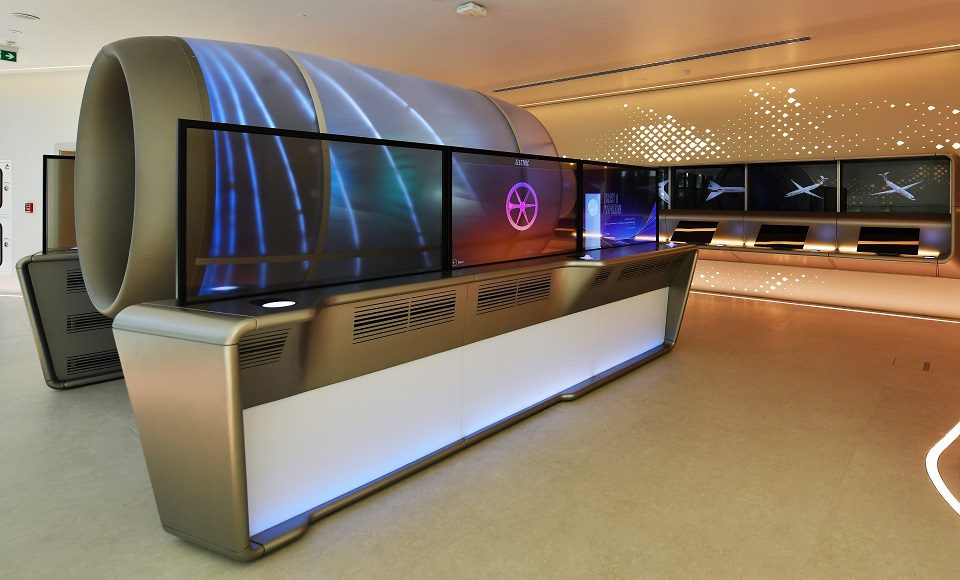 Emirates, the global leader in international air travel, has unveiled a groundbreaking initiative by committing an impressive $200 million to advance research and development (R&D) projects aimed at curbing the environmental impact of fossil fuels in commercial aviation. This unprecedented move marks the most significant single investment by any airline in sustainability, with the funds set to be disbursed over the course of three years. Emirates intends to collaborate with prominent organizations at the forefront of advanced fuel and energy technologies to drive tangible solutions in the industry.
Emirates, the global leader in international air travel, has unveiled a groundbreaking initiative by committing an impressive $200 million to advance research and development (R&D) projects aimed at curbing the environmental impact of fossil fuels in commercial aviation. This unprecedented move marks the most significant single investment by any airline in sustainability, with the funds set to be disbursed over the course of three years. Emirates intends to collaborate with prominent organizations at the forefront of advanced fuel and energy technologies to drive tangible solutions in the industry.
Sir Tim Clark, the esteemed President of Emirates Airline, expressed the company’s resolute dedication to combating the aviation industry’s most pressing environmental challenge. He stated, “We are ring-fencing $200 million to invest in advanced fuel and energy solutions for aviation, which is where airlines currently face the biggest impediment in reducing our environmental impact. We looked long and hard at the reality we face in commercial aircraft and engine technology, fuel supply chain, and our industry’s regulatory and eco-system requirements. It’s clear that with the current pathways available to airlines in terms of emissions reduction, our industry won’t be able to hit net-zero targets in the prescribed timeline.”
Recognizing the urgent need for innovative breakthroughs, Emirates aims to establish meaningful collaborations with leading organizations in the field of R&D. Sir Tim further emphasized, “Our aim is to contribute meaningfully to practical solutions for the long-term sustainability of commercial aviation.” The $200 million fund, exclusively dedicated to R&D, will not be utilized for operating costs such as purchasing Sustainable Aviation Fuel (SAF) or carbon offsets. Instead, Emirates will focus on developing pioneering technologies that transcend existing limitations.
To ensure effective fund management, Emirates has appointed the Environmental Sustainability Executive Steering Group, supported by technical experts, to oversee disbursements and ensure that projects align with the company’s sustainability goals.
Emirates has been an industry pioneer in embracing emissions reduction initiatives, with a comprehensive environmental policy and strategy revolving around three key areas: emissions reduction, responsible consumption, and the conservation of wildlife and habitats. In collaboration with Boeing and GE, the airline successfully completed the world’s first 100% SAF-powered demonstration flight in January. Since 2017, Emirates has actively participated in the SAF market and explored opportunities to utilize SAF across its network wherever feasible. However, the supply of bio-based SAF, currently the only commercially available SAF, remains highly limited, meeting less than 0.1% of airlines’ demands, according to IATA.
The airline has engaged in various industry working groups and stakeholder initiatives focused on sustainable aviation fuel. Notably, Emirates has contributed to developing the UAE’s power-to-liquid (PtL) fuels roadmap, jointly launched by the Ministry of Energy and Infrastructure and the World Economic Forum in July 2022. Additionally, the airline played a vital role in formulating the UAE’s National Sustainable Aviation Fuel Roadmap, unveiled by the Ministry of Energy and Infrastructure in January 2023.
Emirates recognizes its commitment to maintaining a young and modern aircraft fleet is paramount in reducing emissions. With 200 state-of-the-art Airbus and Boeing wide-body aircraft on order, including A350s and 777Xs, the airline’s investment in cutting-edge technology underscores its unwavering dedication to sustainability.
The fuel efficiency program implemented by Emirates focuses on adopting measures to minimize unnecessary fuel burn and emissions wherever operationally feasible. Notable initiatives within the program include using “flex tracks” or flexible routings, which optimize flight plans by leveraging natural tailwinds while avoiding headwinds and weather systems. In collaboration with air navigation service providers, this strategy has been in place since 2003 and is currently being pursued as a standard operating procedure worldwide through collaboration with IATA. Moreover, Emirates implements fuel-efficient practices on the ground, such as utilizing ground power units instead of the aircraft Auxiliary Power Unit (APU) and switching off one or two engines during taxiing after landing.
Beyond aircraft operations, Emirates also invests in renewable energy initiatives. The company has installed solar panels to power operational buildings in Dubai and actively employs air and landside electric vehicles.
Emirates’ unwavering commitment to aviation sustainability has set a precedent in the industry. With its groundbreaking $200 million investment and determination to foster technological innovation, the airline is poised to lead the way in reducing the environmental impact of commercial aviation.
Written by: Jason Smith



















